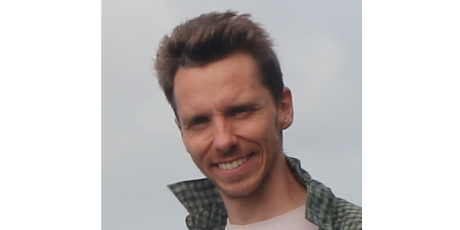New lecturer in Palaeontology joins the ERI academic team 28 Feb 2022

We are delighted to welcome Dr Chris Mays who has just joined the UCC School of BEES as a newly appointed Lecturer in Palaeontology and who is also one of our newest ERI Academics.
Chris received his B.Sc. (Hons) in 2008 from the University of Melbourne, Australia, and his Ph.D. in 2012 from Monash University, Australia.
From 2012–2017, Chris was Lecturer and Postdoctoral Researcher at Monash University’s School of Earth, Atmosphere & Environment. His research focused on the sediments and plant fossils of New Zealand (the Chatham Islands and South Island), Australia (Victoria and Tasmania), and the Antarctic Peninsula. He has employed and developed a range of imaging and 3-D ‘virtual palaeontology’ techniques in the realm of fossil plants, such as neutron tomography and synchrotron X-ray tomography. In 2016, he was awarded the inaugural Mary Wade Prize by the Australasian Palaeontologists for the publication of his monograph on the mid-Cretaceous plant fossils of the Chatham Islands. In 2020, he published his first popular book, which highlights his ongoing palaeontological work in New Zealand.
In 2017, he undertook a Postdoctoral Fellowship at Naturhistoriska riksmuseet (the Swedish Museum of Natural History, Stockholm, Sweden). This project focuses on the extinction and recovery trends of flora during the end-Permian mass extinction, the most severe extinction event in Earth history. In 2020, he was awarded the Dorothy Hill Award by the Australasian Palaeontologists for his foundational work on the end-Permian fossil floral record of the Sydney Basin, Australia.
Chris’ research interests have focused on mass extinctions, and the responses of polar plants and animals to past greenhouse events. In his own words- “I study fossil plants to gauge the health of past environments during extreme warming events. Through studying the most extreme climates of Earth’s past, and their links to mass extinction, my research aims to inform present global environmental changes and their projected impact on land biomes.”
Chris is interested in collaborating with those in the areas of:
- The impacts of long-term climate projections (e.g., years 2100, 2500) on land biomes.
- Analogue studies of plants under extreme climatic stress.
- Metal phytotoxins in soils, and toxic microbial blooms in freshwater systems.
- Ecosystem responses to increased aridity and wildfire prevalence.
- Carbon sink dynamics, and geobiochemical cycle modelling.
Twitter: @palaeomays
Web profile: https://www.researchgate.net/profile/Chris-Mays